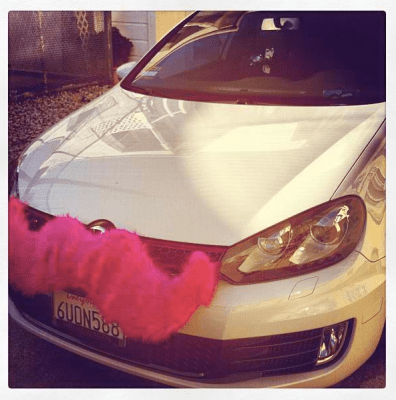The California Public Utilities Commission has taken its next step against a new breed of transportation startups in San Francisco, issuing citations and leveling fines against the likes of ride-sharing services Lyft and SideCar, as well as on-demand car and taxi startup Uber.
Both SideCar and Lyft have confirmed that they received fines of $20,000 for operating unlicensed charter-party businesses by the CPUC enforcement division. Those companies argue that they don’t fall under the regualtory framework for charter-party carriers, which typically own their own fleet and employ their own drivers. Neither company actually owns any vehicles or has drivers on payroll: Instead, they offer up platforms for connecting drivers with rides, and facilitate payments between them.
“We have a situation where we have a new medium, and it is a medium that was not foreseen by regulators,” SideCar CEO Sunil Paul told me by phone today. He compared the introduction of ride-sharing to the advent of online services, which regulators had at one time tried to squeeze under existing phone or newspaper regulations. “The ability to know your location with a supercomputer in your pocket… is utterly transforming transportation,” he said. In SideCar’s case, the company has hired a new head of policy, David Phillips, who served as a lawyer for AOL during those early, Wild West days of the Internet.
Lyft, too, opposes the current framework that the CPUC is trying to place the ride-sharing companies in. At the same time, co-founder John Zimmer pointed to Lyft’s own standards for drivers as better than the requirements from the CPUC has for charter-party carriers. The company conducts does background checks on all its drivers, checking criminal records as well as DMV records. It also does in-person interviews and training for all its drivers before they get on the road. “If you look at any of the things that [the CPUC] regulates, what we’re doing is going above and beyond,” he said.
Uber’s a bit of a different beast, as it works with charter-party carriers to connect black car drivers with rides through the use of its mobile apps. While it doesn’t own or operate any vehicles itself, it partners with companies that do, whose drivers use its mobile apps in their spare time to collect fares based on the time and distance traveled. Uber monitors through GPS location data on its apps.
Because of this, Uber believes that it would be “double-regulated” by the CPUC if it too had to apply for a charter-party carrier license. “Every single transportation provider that Uber partners with in California is properly licensed with the PUC. That means all of the requirements that the state of CA has with regards to commercial transportation of passengers have been met by the providers that we partner with. From insurance, to safety, from equipment inspection to even drug and alcohol testing,” Uber CEO Travis Kalanick wrote in an email. He noted that Uber’s existing relationships make its service “fundamentally different” from the ride-sharing businesses that were also issued fines.
“We do appreciate the model for streamlined supply of the P2P transport co’s (and are actively considering a similar supply model): the drivers don’t pay for additional commercial insurance, the owners of the vehicles don’t get licensed with the state, which costs $2,000 and takes approximately 3 months, no equipment inspection, drug/alcohol testing, worker’s comp requirements or employment insurance for drivers,” Kalanick wrote. “There is a distinct advantage to this kind of streamlined supply, but we haven’t yet figured out a way to do this while feeling that the driver and passenger in the vehicle are adequately protected from a legal or personal injury standpoint.”
It’s a tough day for Kalanick and Uber, as the company was also hit with a class-action lawsuit arguing that its operations in San Francisco are illegal. The company issued a statement calling the lawsuit “baseless,” and saying that it would defend itself in court.
The citations come just a few months after the ride-sharing companies received cease-and-desist letters from the California regulator. Uber had its own cease-and-desist run-in with the CPUC a few years ago, just as it launched in San Francisco. In all cases, the companies have committed to staying on the road despite regulatory scrutiny.
